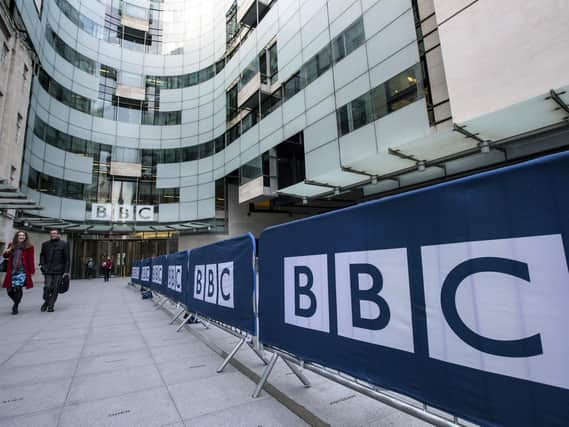Readers' letters: BBC gives good value for 42p a day


Whilst understanding people’s worries and anger over this, I feel that perhaps the pressures facing the BBC have been underestimated.
Free TV licences for over 75s were introduced in 2000 by the then Chancellor, Gordon Brown, as part of a package of benefits for older people like free travel and the winter fuel allowances, and was widely seen as a positive social welfare measure.
Advertisement
Hide AdAdvertisement
Hide AdIn 2015, the then Chancellor George Osborne, as part of the negotiations around renewal of the BBC Charter, gained agreement from the BBC that they would fund licences for over 75s. In effect making the BBC fund a social welfare measure out of its income rather than the Treasury.
In the last decade, the BBC has also taken over funding for such things as covering the costs of digital switchover from analogue TV; rural broadband rollout; local TV; funding of Welsh-language channel S4C; funding of the World Service and Monitoring Service; paying for journalists employed by local newspapers to cover local democracy and funding commercial broadcasters to make children’s TV and radio.
In the last charter period, it has made savings of £1.6bn (£244m a year) and is committed to making savings of a further £40m by 2022.
It represents good value for money providing news, entertainment, factual, radio, internet, education and children’s television.
Advertisement
Hide AdAdvertisement
Hide AdThe list goes on. No one person could or would want to consume it all but it is there for the very nominal sum of £157.50 or about 42p a day.
Despite all this, the BBC continues to face a climate of unprecedented hostility from government and accusations of bias, profligacy and worse.
I truly believe the BBC is a great public service broadcaster. It’s not perfect and of course it should be held to account through the various checks and balances such as charter renewal and the overview of Ofcom.
But it does mean that if we want to keep it, we should value it, even if we don’t agree with everything it says or enjoy all its output.
Tricia Harris
via email
education
Help for pupils
Advertisement
Hide AdAdvertisement
Hide AdTo avoid a repetition of this year’s assessment fiasco, it is very likely that, in 2021, A-level examinations will be held later than normal.
Mid July is being considered by the Education Secretary and Ofqual.
This is to enable students to catch up on work missed because of school closures earlier this year.
During this period, research shows that far too many students, regrettably, did not receive the consistent and high grade help they deserved while at home.
Some received none.
Homework was not set and frequently, if set, not marked.
This was inexcusable.
Advertisement
Hide AdAdvertisement
Hide AdHence, from mid October this year, schools will legally have to provide high quality and consistent teaching to students who are self-isolating at home. Thousands more laptops are being made available for disadvantaged students.
There can now be no excuse for failure to provide students with the knowledge and help they require for their future careers.
The techniques of distance learning online are now basic.
The Open University, for example, has been providing superb distance learning for many years.
Dr Barry Clayton
via email